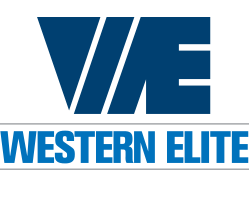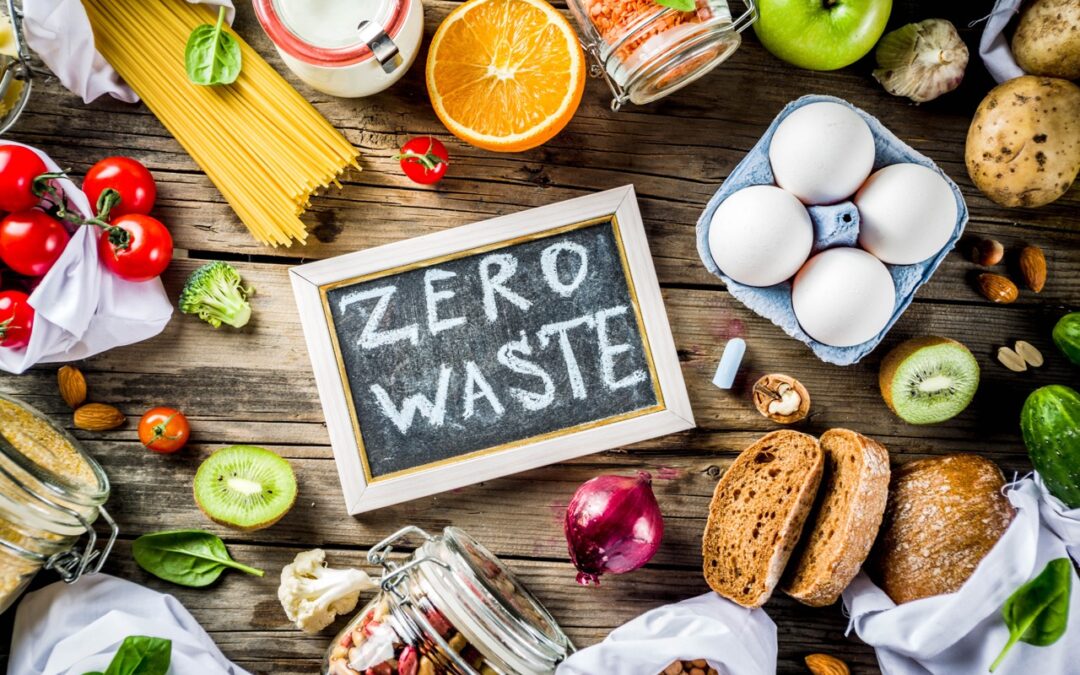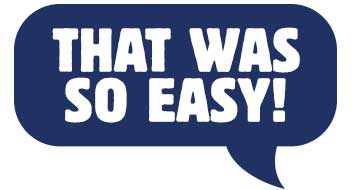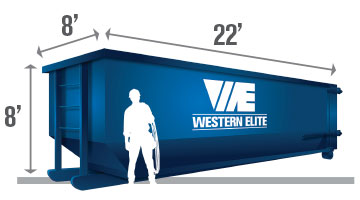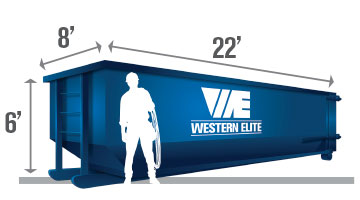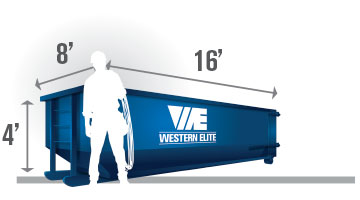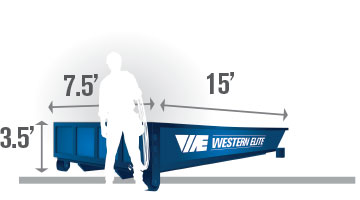Go Green! Zero waste! Carbon footprint! What do these terms mean when it comes to waste and recycling? At Western Elite, we are big fans of reducing, reusing, and recycling. Let us shed some light on the concept of zero waste.
In a Nutshell – Conservation
To be brief, working toward a zero-waste lifestyle is one focused on conservation. You attempt to reduce the amount of trash you produce by altering how any resources, and what kind, you consume.
The Environmental Protection Agency (EPA) defines zero waste as “the conservation of all resources by means of responsible production, consumption, reuse, and recovery of products, packaging, and materials without burning and with no discharges to land, water, or air that threaten the environment or human health.” It’s a tall order! How can we possibly fulfill it?
Types for a Zero Waste Lifestyle
In all our articles about reducing trash production, we suggest starting small so as not to get overwhelmed or discouraged. So, with that in mind, here are some tips for working toward a zero-waste lifestyle.
Reusable Containers
No matter what you’re containing, try ditching plastic and opt for fabric or glass instead. Instead of using flimsy plastic sacks for groceries, opt for a reusable shopping tote instead. Purchase food in bulk and store it in glass containers at home. Look for sustainable packaging on products, whether they’ve already been recycled or can be recycled once opened. You can also purchase or make household cleaners in bulk and store them in reusable containers to cut down on waste products. Basically, if there’s an option to buy something that’s not wrapped in plastic, consider it.
Change What You Eat, and Where it Comes From
Did you know that eating less meat has a big impact on the environment? In order to support agriculture, land is cleared for cattle grazing. That is one impact the industry has on the environment. Additionally, the process of meat products generates potentially harmful emissions into the air. Transporting food, whether it’s meat or produce, also leaves consumes resources.
If you can instead eat locally sourced food, and fewer meat products, you can reduce greenhouse gas emissions and have a smaller carbon footprint yourself. You can start small by visiting farmer’s markets for seasonal produce, or growing some of your own food at home.
Another easy way to reduce your trash output is to drink from reusable containers and avoid disposable straws. There are myriad options when it comes to metal or glass containers and straws, making it easy to go zero waste when it comes to drinks. You can also bring your own cutlery to use at restaurants that only offer plastic; bamboo silverware is inconspicuous and compostable.
SPEAKING OF COMPOST
Even if you start small with a container under your kitchen sink, composting is a big part of living with a zero-waste mindset. Compost is a mixture of organic and inorganic materials such as food scraps, coffee filters, shredded newspaper, and dried leaves. Composting some of your waste not only keeps trash out of landfills but enriches the soil for a new cycle of growth.
Go Paperless
Much of our work these days is digital, so going paperless in the office isn’t too difficult. But what about at home? Are you still using toilet paper, paper towels, and disposable napkins? You may not be ready to give up traditional toilet paper, but how about swapping paper towels for washable rags instead? Yes, you’ll still consume resources washing your rags between uses, but it’s a less significant environmental impact than disposing of countless paper towels every year.
You may also find that changing the type of paper products you use allows you to move closer to a zero-waste lifestyle. Bamboo is more sustainable than other raw materials, so look into swapping out traditional paper towels or toilet paper for ones sourced from bamboo.
SPEAKING OF BAMBOO
Another switch you can make in the bathroom is your toothbrush. The American Dental Association reports that one billion plastic toothbrushes end up in landfills every year. That amounts to 50 million pounds of waste! If you switch to a bamboo toothbrush, you can remove the spent bristles when you’re done and compost the wooden handle.
Another element of going paperless may be switching to online bill pay and opting out of mailers (junk mail) from companies.
Borrow vs Buy
What are some things you could do without purchasing? Library books, games, furniture? Look for ways you can borrow items or purchase them second-hand instead of buying them new. Join community swaps, neighborhood Facebook groups, or scour online ads for items or services you need. On the flip side, it’s also a sustainable way to get rid of items you no longer need, such as clothes, toys, or garden surplus.
Hopefully, this helps illustrate that you don’t have to go big right away when it comes to going zero waste. It’s about being mindful of where things come from, and where they eventually end up. It’s what motivates us at Western Elite to sort through 100% of the waste we collect in order to find recyclable items.
